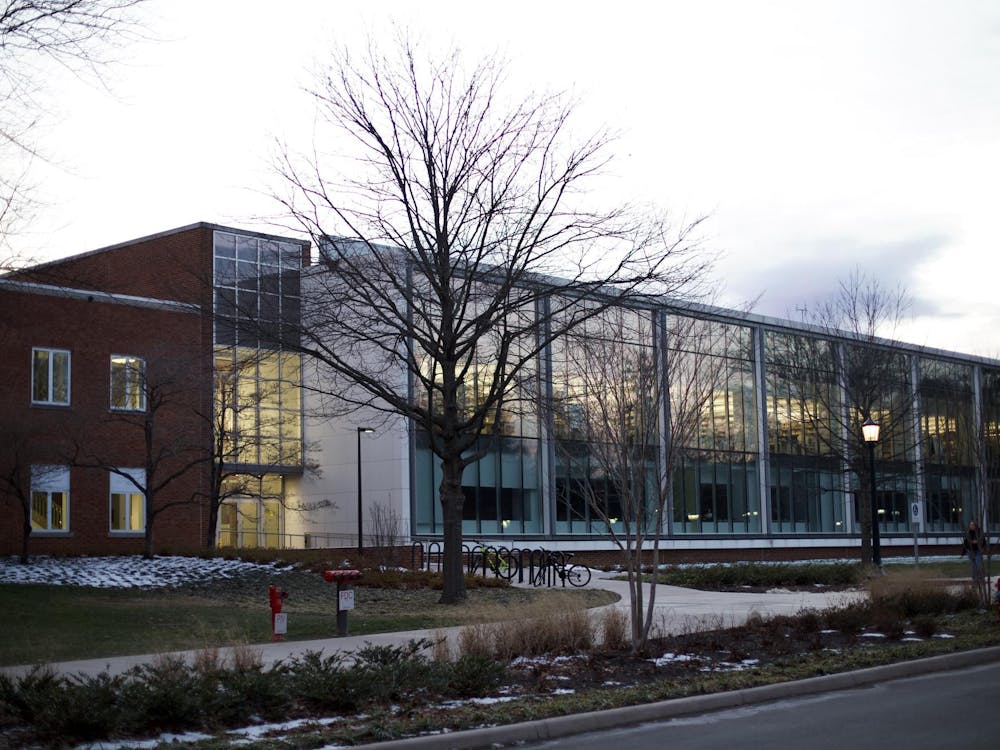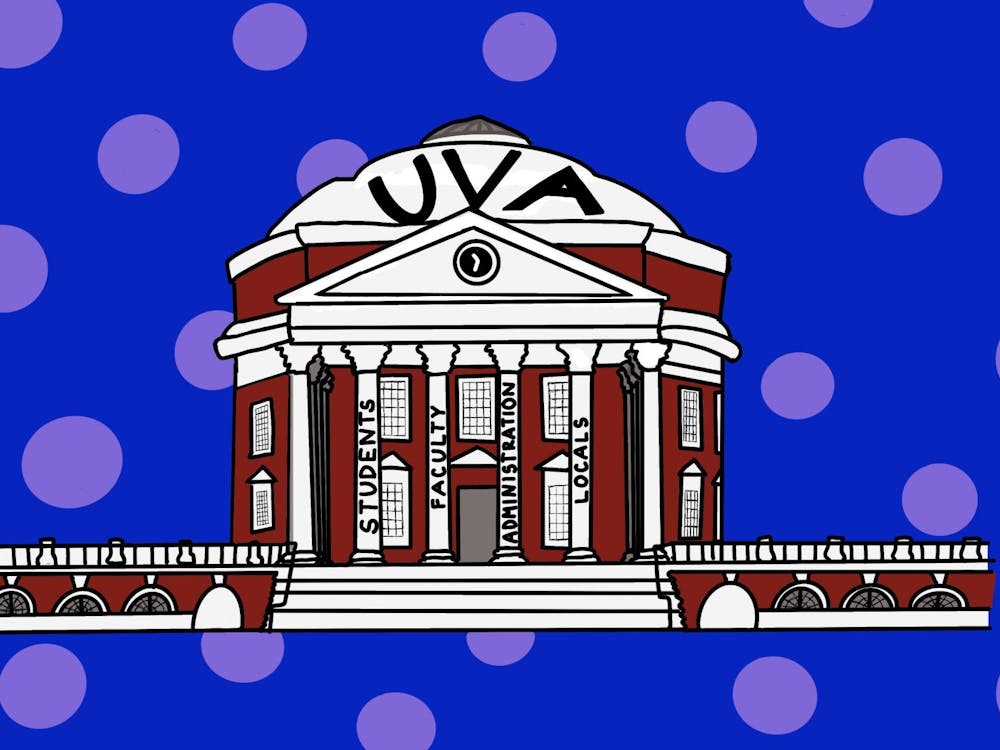THE BOARD of Visitors announced a new goal for the University at last week's meeting: one day, we will be ranked number 15 in the U.S. News & World Report. Such a ranking might enhance our image, but the Board should not value hollow prestige over accessibility and more accurate measures of quality education.
The schools that currently occupy the top 15 spots in the U.S. News rankings share one important distinction: They are all private universities. In order to compete with those schools, we would have to dramatically increase our financial resources. John O. Wynne, chair of the Board's Special Committee on Planning, predicted that the University would have to raise at least an additional $1 billion per year. This would require the aggressive solicitation of wealthy alumni, but it could also lead to higher tuition, which translates to greater loan debt for students.
In an interview, Rector Thomas Farrell III emphasized that the Board is not looking to tuition to increase our ranking. He said that tuition is increasing because "our expenses are going up." The Board should be commended for its desire to keep tuition relatively low, but our expenses will continue to increase as long as our endowment is used elsewhere.
Competing with private schools would also mean directing our limited resources to those areas that are most visible and most likely to influence peer assessments. Meanwhile, most of the steps that would improve the undergraduate experience hold little weight in the rankings. U.S. News most heavily weighs the reputation, selectivity, and financial resources of a university. Class sizes and faculty to student ratios make up only 10 percent of the final score. The formula fails to measure affordability, racial diversity or the opinions of students who attend the schools.
The focus on rankings is especially unnecessary considering that the University is already an extremely competitive school. The prestige of high rankings comes with certain advantages, but there are few opportunities that we don't already enjoy at the University's current position of number 23 among all national universities. While the administration may long to return to the top of the list of public universities, our number two spot guarantees that a degree from the University will be taken seriously by graduate schools and employers.
Farrell said that while the University has "a unique undergraduate student experience" not captured by surveys, a higher ranking would ultimately make our degrees more valuable. It's an unfortunate reality that our degrees will be judged by the prestige of the institution, but that does not mean that we should succumb to the pressures of imperfect rankings. Prestigious degrees open doors, but our future achievements will depend on the knowledge and skills that we learned in the classroom. The support that students receive will shape their future plans far more than the name of the school.
Instead of measuring our progress by rankings in a magazine, the Board of Visitors should use its authority to improve the University in a way that is meaningful to students. Inviting one token student to represent the entire student body is not quite sufficient for gauging student opinion. The Board should undertake a serious investigation of the frustrations facing current students and work on solving those problems.
Ask us how hard it is to get into the classes that interest us. Ask us how much we learn in 300-person lecture classes. Ask us if the faculty has time to work with students, or if academic departments are overcrowded and overwhelmed. Ask us how we feel about rising tuition and the student loan debt that comes with it.
Unless these concerns are addressed, the quest for high rankings will remain an empty pursuit of prestige for the sake of prestige. If we truly value the "education" part of higher education, we should direct our resources to enhancing the academic experience of students, not to improving our national image.
The U.S. News ranking system doesn't measure the satisfaction of students, but if we focus on the needs of undergraduates, the best high school students will be even more likely to accept admission offers. Word will spread not because of our ranking, but because students will tell their friends that they love it here.
Cari Lynn Hennessy's column appears Tuesdays in The Cavalier Daily. She can be reached at chennessey@cavalierdaily.com.





